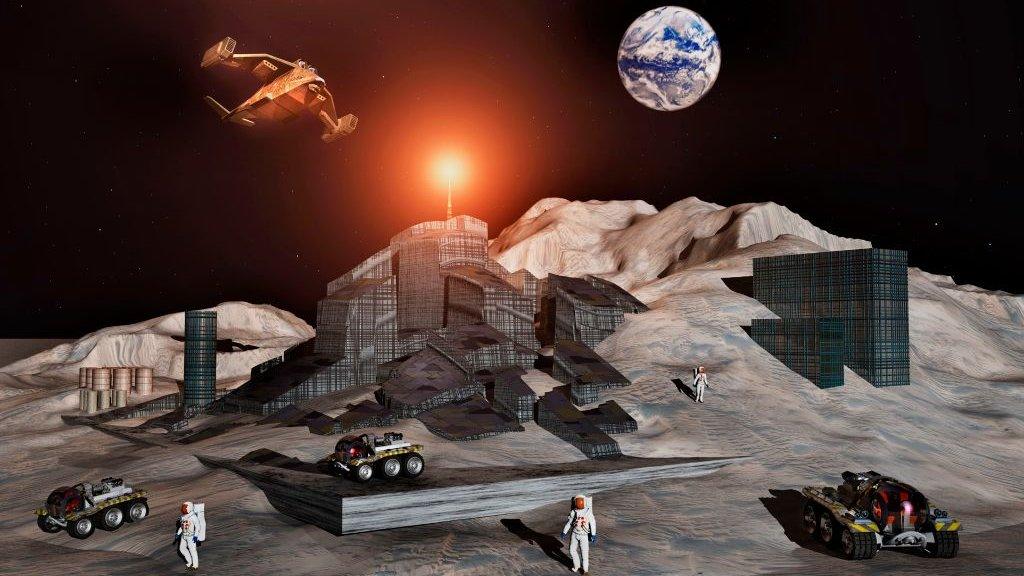Space: Planets and comets should be protected from humans mining for minerals, scientists say
- Published

An artist's impression of what mining on the moon could look like
Planets, moons and asteroids should be protected from mining companies, according to a new report.
One of the big ideas behind space mining, is that if minerals can be found on other planets, extracting them there could help to protect the environment here on Earth.
But the scientists behind this report say that huge areas of our solar system actually need to be protected from companies who want to mine it for precious metals and minerals.
They want around 85% of our solar system to be saved from human interference.
They are worried that if our solar system is over-mined, there will be no space wilderness left.
For example, in the UK a company called the Asteroid Mining Corporation says it wants to send a satellite into space to look for potential asteroids to mine.
Precious metals like platinum, gold and iron could be recovered and taken back to Earth - and could also be used in space to help build bases on the moon, or to make rocket fuel.
On their website they argue that asteroid mining will help the world's environment, by moving industry into space so that Earth can be an oasis of life in the Solar System and help develop to develop human space exploration and adventure.
But scientists are worried that once people start mining and making lots of money selling the materials back on Earth, it might start a rush, with lots of other companies wanting to do it too.
"Once you've exploited the solar system, there's nowhere left to go... What about the rings of Saturn? They are beautiful, almost pure water ice. Is it OK to mine those so that in 100 years they are gone?"
A coal mining site in Jharkhand, in India.
They think if they can put protection in place now, it will help limit the damage in the future.
Martin Elvis, a senior astrophysicist at the Smithsonian Astrophysical Observatory in the USA said: "If we don't think about this now, we will go ahead as we always have, and in a few hundred years we will face an extreme crisis, much worse than we have on Earth now."
- Published11 April 2019
- Published13 March 2019
- Published27 November 2018
